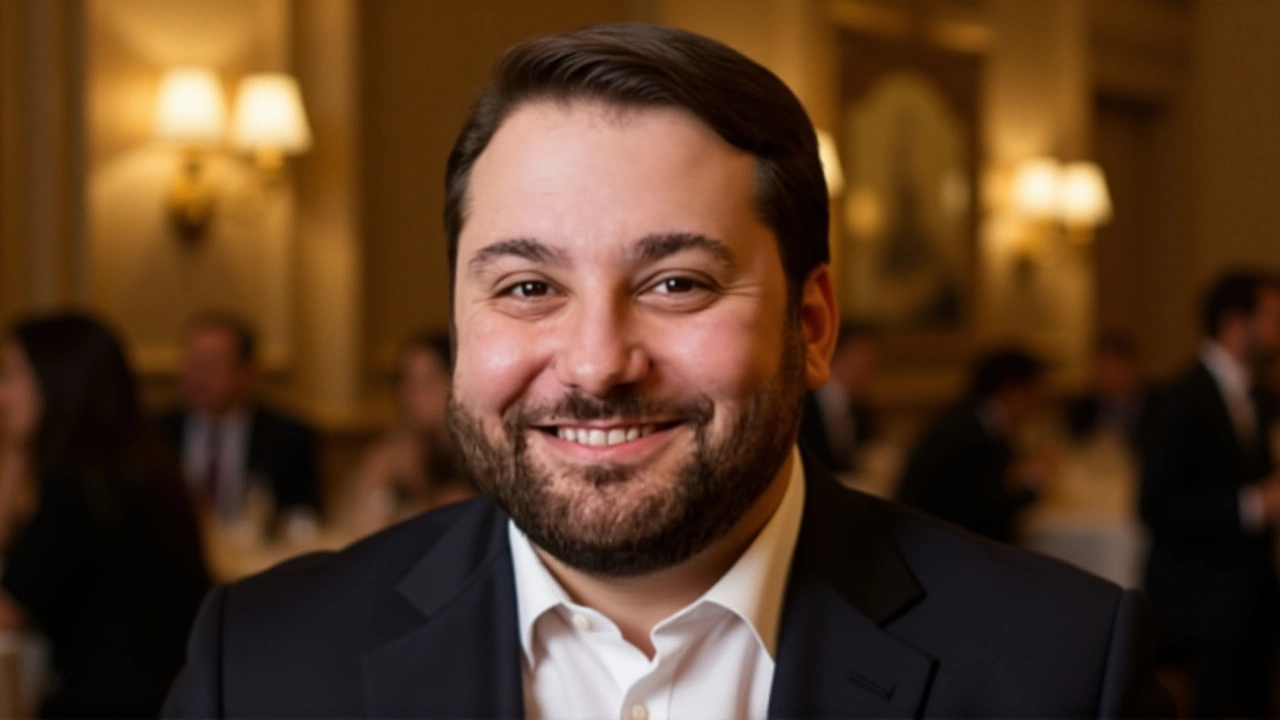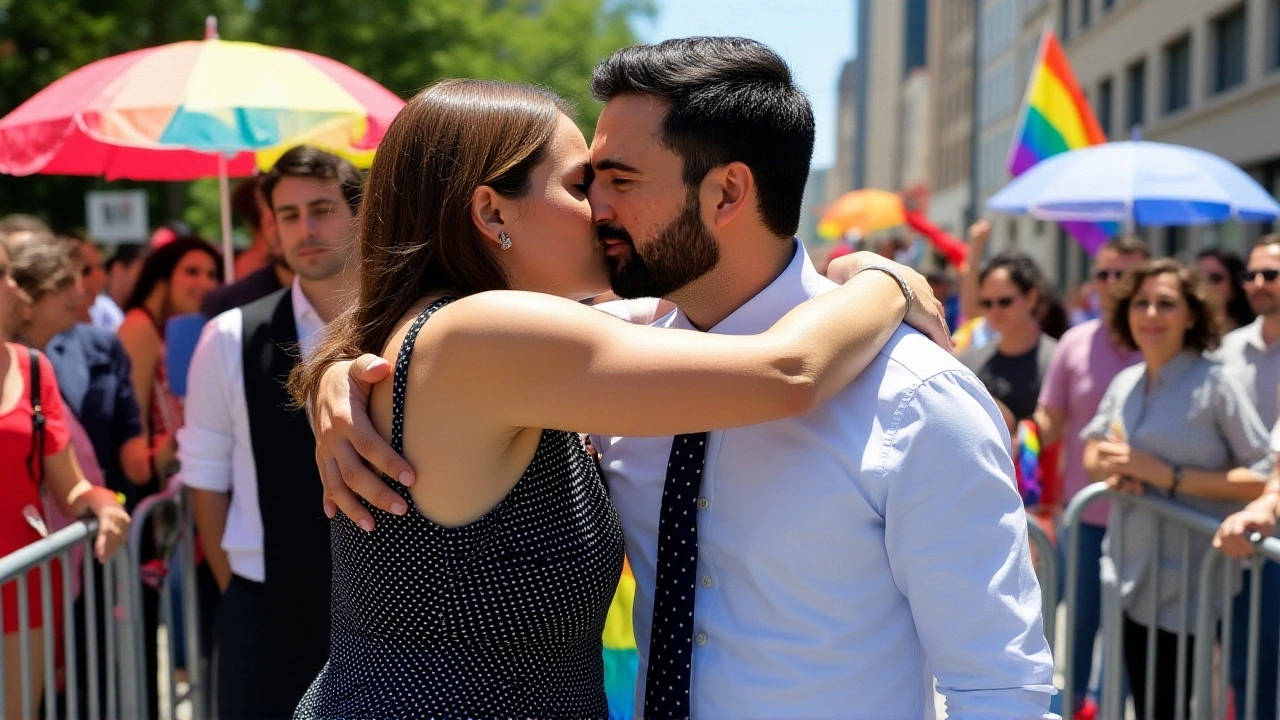During a press availability at the newly opened Alligator Alcatraz migrant processing center in Florida’s Everglades, Donald J. Trump, President of the United States warned he would have New York City’s Democratic mayoral hopeful Zohran Kwame Mamdani, New York State Assemblymember arrested if the candidate tried to block Immigration and Customs Enforcement (ICE) from making immigration‑related arrests in the city. The remark, delivered at 10:53 AM UTC on July 1, 2025, ignited a firestorm of legal analysis and political rhetoric ahead of the November mayoral election.
Background on the NYC Mayoral Race
The Democratic primary on June 27, 2025, saw Mamdani, a 33‑year‑old Queens‑born assemblyman, clinch a decisive lead with 38.7 % of the vote, though the results await certification by the New York City Board of Elections on July 15. In his victory speech, Mamdani pledged to "stop masked ICE agents from deporting our neighbors," a promise that aligns with his broader progressive platform: free public transit, robust tenant protections, and the Good Cause Eviction bill he helped shepherd through the Assembly.
His main challengers include incumbent Mayor Eric Leroy Adams, running as an independent, former Governor Andrew Mark Cuomo on the "Fight and Deliver" line, and former Guardian Angels founder Curtis Sliwa representing the Republican Party. The general election is slated for November 4, 2025.
Trump’s Threat at Alligator Alcatraz
When reporters asked whether he would intervene if a mayor tried to curb ICE activity, the president answered bluntly: "Well then, we'll have to arrest him." He went on to call Mamdani a "communist," despite Mamdani’s self‑identification as a democratic socialist and his naturalized citizenship status. Trump also suggested, without evidence, that Mamdani might be in the country illegally, saying, "A lot of people are saying he's here illegally. We're going to look at everything."
At the same briefing, the president raised the citizenship of tech billionaire Elon Reeve Musk, hinting at a possible review of Musk’s naturalization after criticisms of the so‑called "Big Beautiful Bill," a federal infrastructure package passed earlier this year.
Legal Perspective on Denaturalization
A legal analysis published by TIME Magazine on July 2, 2025, clarified that even if the administration pursued denaturalization against Mamdani, the move would not automatically lead to deportation. A denaturalized citizen reverts to their prior immigration status—in Mamdani’s case, a lawful permanent resident holding a green card. The analysis warned that any attempt to strip citizenship would face steep constitutional hurdles, including the Fifth Amendment’s due‑process clause and the Fourteenth Amendment’s equal‑protection guarantee.
Immigration law experts, such as Professor Aisha Patel of Columbia Law School, noted that the “politicization of denaturalization” is virtually unprecedented and could set a dangerous precedent for targeting elected officials based on policy positions rather than criminal conduct.

Reactions from Candidates and City Officials
Minutes after the president’s remarks, Mamdani issued a statement at 3:45 PM EDT, denouncing the threat as "an attack on democracy" and warning that it sent a chilling message to New Yorkers who "refuse to hide in the shadows." He emphasized that his pledge to protect undocumented residents is rooted in constitutional rights and the city’s historic role as a sanctuary.
Mayor Adams, when contacted, described the comments as "unproductive rhetoric" and reiterated his own commitment to public safety without endorsing aggressive federal immigration enforcement in the city. Cuomo’s campaign dismissed the threat as a "political stunt" aimed at rallying the conservative base, while Sliwa framed it as evidence that "law‑and‑order voters" need a candidate who will stand strong with the president.
Civil liberties groups, including the ACLU’s New York chapter, filed a brief urging courts to block any executive action that would target Mamdani solely for his policy stance, arguing that such a move would violate the First Amendment’s protection of political speech.
Implications for Immigration Policy and Democracy
Trump’s threat underscores a broader pattern of the administration’s hard‑line stance on immigration, demonstrated recently by the handcuffing of several Democratic lawmakers during protests against ICE policies. The Alligator Alcatraz facility, which opened on June 1, 2025, has a capacity of 1,200 detainees and is already a flashpoint in the ongoing debate over migrant treatment.
For New York City, the episode could reshape voter attitudes. A poll conducted by Siena College Research Institute on July 5 showed that 62 % of respondents view the president’s comment as an overreach, while 21 % said it reinforced their concerns about ICE.
Legal scholars argue that any attempt to use federal authority to punish a mayor‑elect candidate for a policy position could trigger a constitutional clash between the executive branch and state/local autonomy, reminiscent of the “Sanctuary Cities” lawsuits that have dotted the political landscape since 2017.

What Comes Next
The New York City Board of Elections is expected to certify the primary results by July 15, making Mamdani the official Democratic nominee. The general election will test whether the president’s hard‑line rhetoric can sway swing voters in a city traditionally leaning Democratic.
Meanwhile, immigration advocacy groups plan to stage a series of peaceful demonstrations outside the Alligator Alcatraz facility, aiming to keep the spotlight on the human cost of detention.
- July 1, 2025 – Trump threatens arrest at Alligator Alcatraz.
- July 2, 2025 – TIME Magazine releases legal analysis on denaturalization.
- July 5, 2025 – Siena College poll on public reaction.
- July 15, 2025 – Expected certification of NYC primary results.
- November 4, 2025 – General mayoral election.
Frequently Asked Questions
How does Trump’s threat affect Zohran Mamdani’s mayoral campaign?
The threat has turned Mamdani into a rallying figure for immigration‑rights advocates, boosting his visibility among progressive voters. However, it also gives his opponents a platform to frame the race as a choice between “law and order” and “soft‑on‑immigration.” Polls show a modest uptick in support for Mamdani after the remarks, but the overall impact will depend on how the narrative evolves through the primary certification and general election.
Can the president actually order the arrest of a mayoral candidate?
Legally, the president cannot unilaterally arrest a private citizen without due process. Any arrest would require a federal warrant based on criminal conduct, not merely a policy stance. Attempts to denaturalize Mamdani, as legal scholars note, would not automatically strip him of citizenship or lead to deportation.
What is the Alligator Alcatraz facility?
Alligator Alcatraz is a 1,200‑bed migrant processing center run by ICE in the Everglades National Park region of southern Florida. Opened on June 1, 2025, it has quickly become a symbol of the administration’s expanded detention capacity and has drawn criticism from human‑rights groups.
What legal recourse does Mamdani have if the administration tries to strip his citizenship?
Mamdani could sue under the Fifth Amendment for due‑process violations and invoke the Fourteenth Amendment’s equal‑protection clause. Courts have historically been hesitant to overturn naturalization decisions, especially when they appear politically motivated, making it a steep uphill battle for the administration.
How might this episode influence national immigration policy?
The incident could accelerate congressional debates over sanctuary city protections and federal‑state jurisdiction. Lawmakers opposed to the president’s hardline stance may use the case as a catalyst for legislation that limits executive attempts to target local officials for immigration policy decisions.
